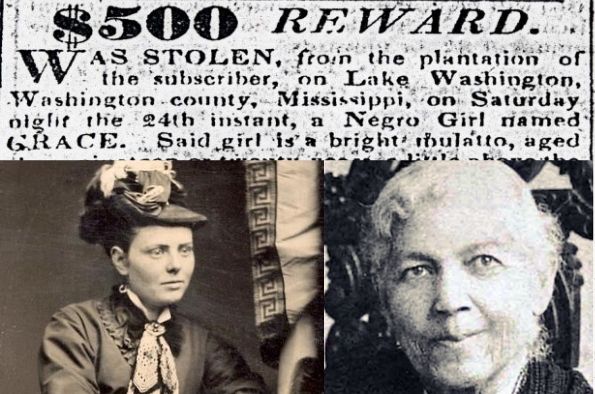
Slave Stealing Women, Slave-Owning Women and Stolen Slaves in the American South
- Dr Craig Stafford
- Admission: This is a free event, however please register via the Eventbrite link provided
- Book now
Add this event to my calendar
Click on "Create a calendar file" and your browser will download a .ics file for this event.
Microsoft Outlook: Download the file, double-click it to open it in Outlook, then click on "Save & Close" to save it to your calendar. If that doesn't work go into Outlook, click on the File tab, then on Open & Export, then Open Calendar. Select your .ics file then click on "Save & Close".
Google Calendar: download the file, then go into your calendar. On the left where it says "Other calendars" click on the arrow icon and then click on Import calendar. Click on Browse and select the .ics file, then click on Import.
Apple Calendar: The file may open automatically with an option to save it to your calendar. If not, download the file, then you can either drag it to Calendar or import the file by going to File >Import > Import and choosing the .ics file.
The phenomenon of slave stealing has yet to attract scholarly attention; the numerous women branded as kidnappers and “negro thieves” are almost completely absent from the historiography of American slavery. Free women, across the spectrums of race and class, played central roles in these dangerous, illegal, ‘unfeminine’ ventures. On the other side of the law, slave-owning women, married and single, were also embroiled in slave stealing cases. They filed numerous suits to country courts across the South, attempting to retrieve their stolen enslaved people. Both slave stealing women and slave-owing women, despite their differing motivations, challenged contemporary gender conventions and exposed the fragility of social constructions of the gendered identity that underpinned social and political authority in the American South. In broad terms, their behaviour complicates traditional definitions of female resistance under slavery. These women protested their treatment by their communities, governors, and family and proved willing to break, or manipulate, the laws of slavery in order to advance their own interests, be they monetary, emotional, or ideological. Their challenges regularly tested the pillars on which a patriarchal slave society rested and placed them at the centre of local and national dramas which revolved around human trafficking and the right to own human property. Their actions were socially and culturally destabilizing and underlined the ambivalent nature of Southern law and custom. Slave stealing, therefore, contributed to the rising sense of insecurity over the future of the institution of slavery, shaped antebellum southern political thought and significantly contributed to the growth of sectionalism, which led to the outbreak of the American Civil War.
Speaker Bio:
Laura Sandy is a historian of slavery, North America and the Atlantic World and is, also, currently the University co-director of the Centre for the Study of International Slavery (CSIS). She She teaches undergraduate modules on colonial America, American slavery and Civil Rights and comparative slaveries. She joined the University of Liverpool in October 2015 having previously held full-time posts at Oxford Brookes University and Keele University. Laura’s ESRC funded PhD and Post-Doctoral award supported research on American slavery and led to the publication of works which review the lives of overseers (free and enslaved) and their wives on colonial slave plantations in Virginia and South Carolina. Her first book is entitled "The Overseers of Early American Slavery: Supervisors, Enslaved Labourers, and the Plantation Enterprise." She is also the editor of a collection of essays, "The Civil War and Slavery Reconsidered: Negotiating the Peripheries.” Her work has involved archival research in every former slave state in the southern United States looking at slavery, plantation management, resistance, free people of colour, voluntary enslavement, the theft of enslaved people and the laws of slavery. Her most recent work investigates the illegal trafficking of the enslaved in North America in the 18th and 19th centuries. Laura has advised on museum exhibitions and given talks on her research to historical societies, institutions, and schools in the UK, Europe, and the US.
